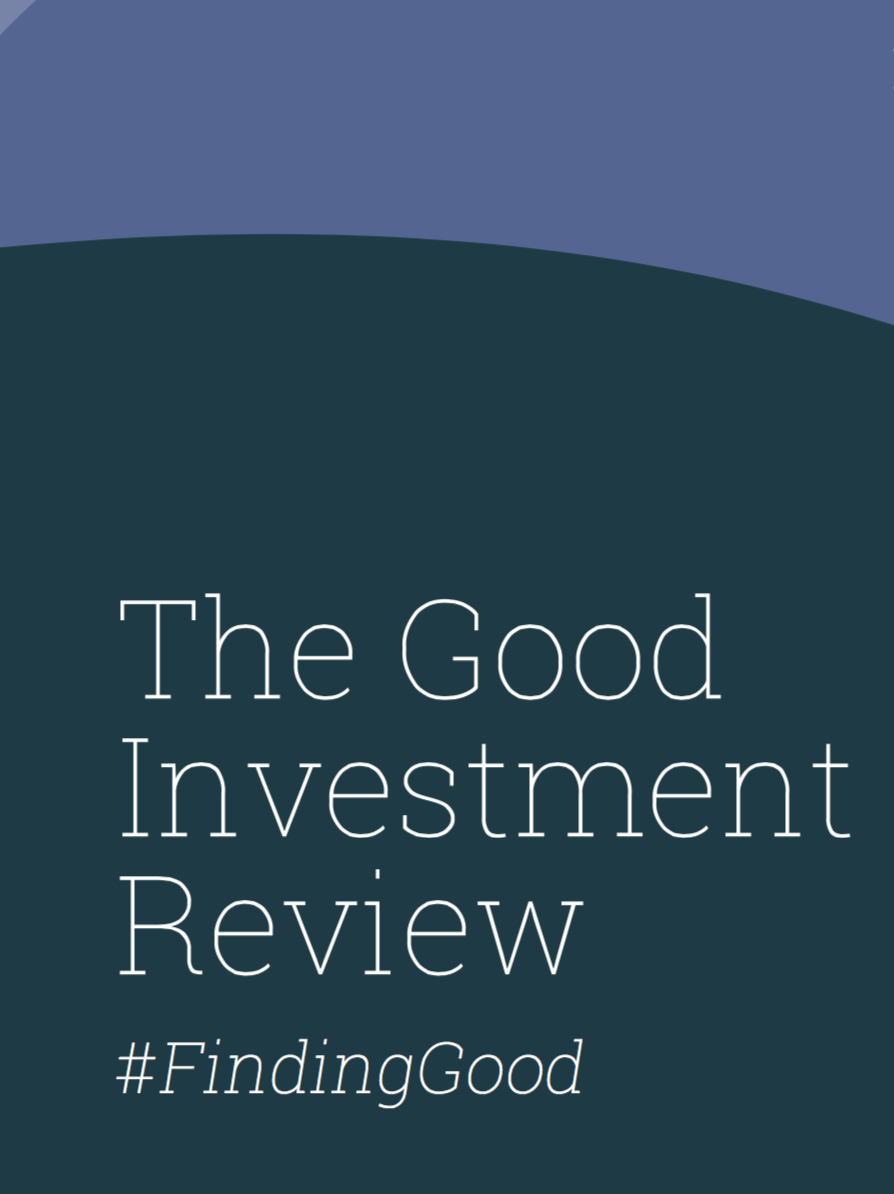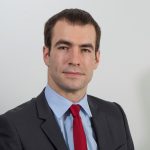This interview with Simon Clements, fund manager at Liontrust Asset Management, is an extract from The Good Investment Review, the free-to-download, bi-annual impact fund market review from 3D Investing and Good With Money.
Who are you (fund management group)?
Liontrust is a specialist fund management company that takes pride in having a distinct culture and approach to running money. The company launched in 1995, was listed on the London Stock Exchange in 1999 and is an independent business with no corporate parent.
We focus on areas of investment in which we have particular expertise and have seven fund management teams: five that invest in UK, European, Asian and Global equities, one that manages Multi- Asset portfolios and a Sustainable Investment team.
With so many new technologies emerging, such as alternative energy that can be applied on a massive scale, battery storage technology that is cheap and accessible for everyone, and electric vehicles that we all want to drive, this is an exciting period. The world is changing.
We believe in the benefits of active fund management over the long term and our fund managers have the freedom to manage their portfolios according to their own investment processes and market views without being distracted by other day-to-day aspects of running a fund management company.
Each fund management team applies distinct and rigorous investment processes to the management of funds and portfolios that ensure the way we manage money is predictable and repeatable.
Tell us a bit about yourself – what gets you out of bed in the morning?
We are excited about being involved in the transition to what we see as a more sustainable global economy. With so many new technologies emerging, such as alternative energy that can be applied on a massive scale, battery storage technology that is cheap and accessible for everyone, and electric vehicles that we all want to drive, this is an exciting period. The world is changing and we love being a part of this change.

What makes your fund distinctive?
The Liontrust SF Managed Fund is distinctive because it focuses on key trends and changes in the global economy related to sustainability. It then focuses on these changes across a broad range of sectors. So while the fund’s sustainability lens is a differentiator, the broad range of areas in which we invest also gives it a clear edge. There are things we will not invest in, fossil fuels for example; instead, we will seek out alternatives in this area of the global economy that can deliver a solution to our energy needs without negatively impacting the environment and our atmosphere.
How do you engage with the companies in which you invest?
Engagement is a key pillar of our process, as we aim to help and encourage the companies in which we invest to act in a more sustainable way. We set engagement priorities at the beginning of each year and are currently prioritising areas such corporate tax, gender diversity, supply chain responsibility within apparel and responsible use of plastics within the consumer sector. We also collaborate with our peers and organisations such as the PRI (Principles for Responsible Investment) to ensure we can capitalise on shared goals.
What are the positive social and environmental impacts of your fund and how do you measure them?
Our investment process is designed to identify quality growth companies with good business fundamentals, which we feel are undervalued and have a positive impact on society and the environment. The social and environmental impact of the companies in which we invest is measured in the following ways:
- All companies are rated using our sustainability matrix, which assesses their net impact on society and the environment. The rating ranges from A, which is a positive net benefit in keeping with sustainable development, to B, positive impacts offset by some lesser negatives, to C, which is neutral. We avoid companies rated D or E as we believe they are net detractors from developing more sustainably and are ultimately a poor investment as a result. The outcome of this is to skew our portfolios towards the more sustainable opportunity set of investments.
- Exposure to positive investment themes: we analyse all companies to check their impact
and have identified 23 themes with net positive impacts. These are under three broad categories, which make development more efficient (better use of resources such as energy, water and materials), healthier, and safer (more resilient businesses and services to make systems more robust). Our funds generally have in excess of 80 per cent exposure to these investment themes. We classify the remaining holdings as neutral. - In response to client demand and to help them better frame the positive impacts associated with
the Sustainable Future funds, we are doing work to show where our positive investment themes (point 2 above) are aligned with the Sustainable Development goals established by the United Nations. - We also have aggregate portfolio measurements showing how the funds differ from the markets
in which they are invested. To date, this has been limited to how much carbon the companies we invest in emit compared to the market as a whole. We have run this analysis using a third party, MSCI Carbon Analytics, for a number of years and the results consistently show the Sustainable Future funds emit approximately two-thirds less CO2 than mainstream benchmarks. This shows the portfolio emits far less carbon than the market, which makes the companies in aggregate resilient to climate change regulation (such as any future carbon tax).
What’s your biggest concern for the next year?
Our biggest concern is the macroeconomic shock. Our themes are very much structural, rather than cyclical, in nature so they will deliver in almost any macroeconomic environment. A shock will derail sensible long-term investment decisions for many of the products and solutions we invest in, however, so it can provide a short-term headwind.
What’s been your most successful investment?
Energy efficiency as a theme has been very successful for us. There are a range of companies that have benefited, including Kingspan in Ireland with leading technology in insulation, Daikin in Japan with similar leading technology in air conditioning and Equinix in the US that provides the same solutions in data centres for the technology industry.
What’s been your biggest investment disappointment?
Sunpower in the US was a disappointment. It is the technology leader in the manufacturing of solar cells and we felt even in a deflationary market, where the cost of cells are falling, its technology lead and impressive volume growth could deliver improving returns.
Unfortunately, oversupply out of China over 2016 was a severe headwind and the stock suffered. Falling solar prices is great for the industry but companies need to improve efficiencies to offset these price falls, and the pace at which prices fell made that very difficult.
Download the Good Investment Review




